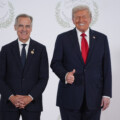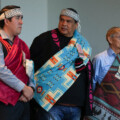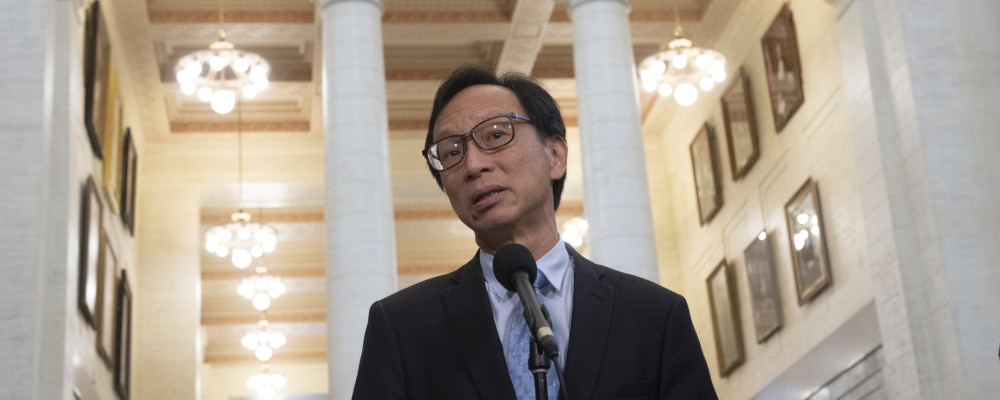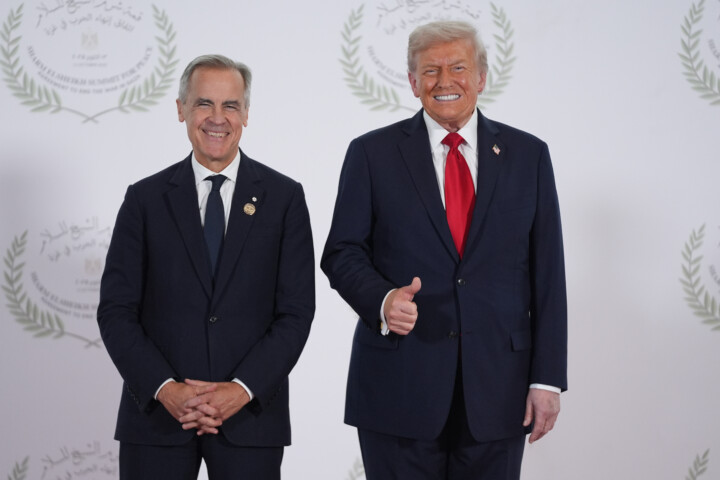Here we go again.
Lately, there have been some in the commentator class who seem to have forgotten the hard lessons about dealing with China that we have slowly, painfully, and collectively learned over the past two-and-a-half years.
Ever since the lawful arrest of Huawei executive Meng Wanzhou in Canada, and the retaliatory hostage-taking of Michael Kovrig and Michael Spavor by China, we have experienced firsthand the true nature of the Chinese Communist Party.
While engaging in hostage diplomacy is the most obvious example, we cannot forget the PRC is still using economic coercion against our agriculture sector. Beijing is also involved in routine foreign disinformation, interference and influence operations in Canada, as well as coercing diaspora communities in Canada to serve PRC regime purposes, such as the illegal transfer of sensitive Canadian technologies to China. What’s more, Beijing engages in cyber attacks and espionage against Canada and our democratic friends around the world.
In recent years, the PRC regime has stealthily acquired considerable editorial control of most Chinese language media in Canada.
Last week’s forced closure of Hong Kong’s Apple Daily with the arrest of its founder, Jimmy Lai, and his brave journalist colleagues means the last Chinese language source of informed, unbiased commentary on China’s Communist Party’s policies, hidden agendas and political corruption has been silenced. The Apple Daily was a key rallying point for upholding true Chinese liberal democracy. The tragedy of its demise cannot be overstated. The PRC has crushed a once thriving democracy in Hong Kong.
The kidnapping of Kovrig and Spavor is symptomatic of the kind of regime that we are dealing with. It threatens neighbours with its growing military. It is quite clearly engaging in genocide against its Uyghur population. These horrendous affronts against the liberal world order are all linked as the CCP seeks to establish global dominance at the expense of Canada and our democratic allies.
Despite all this, and despite Canadians’ increasing suspicion of the regime in Beijing, we still see all sorts of painfully bad takes on China in Western media that pretend to ignore these hard lessons. Take for instance the recent Globe and Mail article by University of British Columbia professor Paul Evans and Senator Yuen Pau Woo, who have adopted the Chinese Communist Party’s rhetoric wholesale.
Just like the PRC’s own apologists, Evans and Woo claim that criticism of the domestic and international policies of the PRC regime in China is driving anti-Chinese racism in Canada. Yes, some researchers did find that discrimination against Chinese Canadians has been on the rise since the start of the COVID-19 pandemic, but Evans and Woo are wrong to twist the story by using such findings to deflect criticism of Beijing.
Evans and Woo suggest that raising concerns about the CCP’s foreign disinformation and propaganda wing, the United Front Work Department, is not only exaggerated but contributes to “racial profiling and stigmatization.” Yet they offer little detail on how this criticism, often from highly reputable sources like Western intelligence agencies and scholars and experts on national security, is exaggerated as opposed to being fair and well-reasoned.
The authors ignore the fact that many of the regime’s most passionate critics are themselves of Chinese descent.
In their flawed logic, condemning the broad scope of belligerent and deplorable actions of the regime “sensationalizes” China to the detriment of the Chinese people. In so doing, they take a tactic from the CCP’s own playbook, as accusations of “sensationalism” are often used by the Chinese government against their own critics, at home and abroad.
The same can be said about their casual dismissal of concerns about “elite capture” (influence by the regime over Canadian political and business leaders) as a modern-day equivalent of McCarthyism, or their willingness to condemn the FBI and the U.S. Department of Justice for investigating and prosecuting professors and researchers of Chinese descent for espionage. In this view, the “toxic atmosphere” is not caused by China’s sharp power tactics against Canada and the U.S., but by those who point them out.
Chinese, Tibetan, Uyghur and Hong Kong critics of the Chinese regime routinely face bullying and intimidation, including threats of death or sexual violence, right here in Canada. But this does not concern the authors of the Globe article. Rather, they argue that Canada needs to show greater tolerance for views that are indistinguishable from the propaganda of the regime; otherwise, they warn, Chinese Canadians will face discrimination.
The authors ignore the fact that many of the regime’s most passionate critics are themselves of Chinese descent. They neglect to mention that the principal oppressor of the Chinese people is in fact the CCP itself. Calling this out is not racist; it is empowering to those who live in China and risk imprisonment for merely expressing opinions that the regime finds distasteful.
Worse still, this article from Evans and Woo is hardly an isolated statement from the authors; it certainly is not out of character. Most recently, Woo doubled down on repeating the rhetoric used by the wolf warriors in China’s Embassy in Ottawa, arguing that Canada cannot be critical of China’s ongoing genocide in Xinjiang due to Canada’s own deeply problematic history with residential schools.
This classic whataboutism is obviously not concerned about racial inequality or the wellbeing of Indigenous peoples, but again, defending the PRC regime against criticism for its abhorrent human rights abuses. The fact of Canada’s appalling history of gross mistreatment of indigenous peoples makes us Canadians even more sensitized to the evil of crimes against humanity being committed by autocratic racist regimes in China and elsewhere in the world. Woo has it exactly backwards.
Let’s not be fooled by the Chinese regime’s propaganda: President Xi and his Communist Party cronies are not our friends, they have no intention of treating us as equals, and they will go to great lengths to achieve ends that are fundamentally opposed to our interests and values.
Chinese people, and the Chinese diaspora in Canada and around the world, are the ones who will suffer most if we ignore these truths and choose instead the perverse path of appeasement.
Recommended for You

Supply management will be sacrificed to appease Trump, and the Netflix takeover is bad for Hollywood: The Hub predicts 2026

Canada will attempt to join the EU and Justin Trudeau becomes a Katy Perry lyric: The Hub predicts 2026

Why Danielle Smith is the newsmaker of the year

I was an early supporter of B.C.’s Indigenous rights laws. Here’s why I’ve changed my mind




Comments (0)